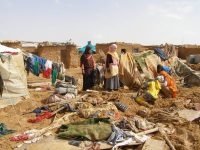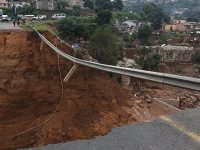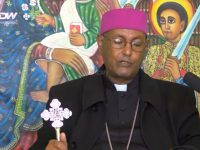Faced with a deteriorating nutrition situation in the Sahrawi refugee camps, including over 75 percent…

Ebola in DRC: MSF Calls for an Independent, International Committee for Vaccine
An independent, international committee for Ebola vaccination. The NGO, Medecins sans Frontieres (MSF), has called for the committee as a response to the death of over 2,000 people in the Democratic Republic of Congo from the Ebola outbreak in more than a year and where the mortality rate has risen to 67%.
“We think that upping the pace of vaccination is necessary and feasible: at least 2,000-2,500 people could be vaccinated each day, instead of 500-1,000 as is currently the case. We have a vaccine that is proven to be safe and effective; we have teams ready to be deployed; there is no problem with the cold chain; there are enough doses to cover the current needs and to allow for an extension of vaccination coverage, as recently confirmed by Merck, the vaccine manufacturer; and when there is enough awareness, the vast majority of the population wants to be vaccinated,” says Dr Defourny, MSF director of operations.
“Yet WHO is restricting the availability of the vaccine in the field and the eligibility criteria and their application for reasons that are unclear. Even when it comes to frontline health workers (a known, easily reachable population), in a hotspot of the outbreak such as Beni, almost a third of them reported they have not been vaccinated.”
The emergency in the country can be compared to the outbreak in West Africa in 2014-2016 when neither therapeutic treatments nor highly effective vaccines were available.
According to MSF, one of the main problems is that vaccination activities are too slow also due to the lack of transparency concerning vaccine supplies by the World Health Organisation (WHO).
MSF is asking the organisation for an independent committee to facilitate a more transparent management of the vaccination programme.
At least 40% of the deaths occurred at home before the people were identified as patients.
Thanks to the efforts of the Ministry of Health and the WHO, approximately 225,000 people were vaccinated with rVSV-ZEBOV, a new vaccine produced by Merck that has shown high levels of efficacy.
However, this number is greatly insufficient as can be seen by the fact that the outbreak continues to return to areas covered by vaccination drives and areas that have not had new cases for long periods of time. Only part of the eligible population is benefitting from the vaccine because the WHO continues to impose restrictions on the number of doses to use in the field.
“Community mistrust and resistance have often been pointed out as the major obstacles in the fight against Ebola. In reality, people would seek medical care at the onset of symptoms if we told them loud and clear that they can be cured with treatments recently proven to greatly increase their chances of survival,” says Dr Natalie Roberts, MSF Emergency Coordinator.
“They would also come to be vaccinated in greater numbers if more people were aware they can be protected from the virus by a vaccine proven to be highly effective against Ebola. We need to stop blaming communities for their own deaths and make sure more people have access to treatments and vaccines.”
MSF is calling for the urgent creation of an international and independent coordination committee based on the model of the International Coordination Group established in 1997 made up of MSF, the International Federation of Red Cross, UNICEF and WHO, which proved successful in managing serious meningitis, cholera and yellow fever outbreaks with limited vaccine supplies.
The committee would bring partners together to improve vaccine coordination, increase transparency in stock management, share data, foster an open dialogue with the producers and ultimately ensure that the vaccine is provided to those at a higher risk of being exposed to the virus.




